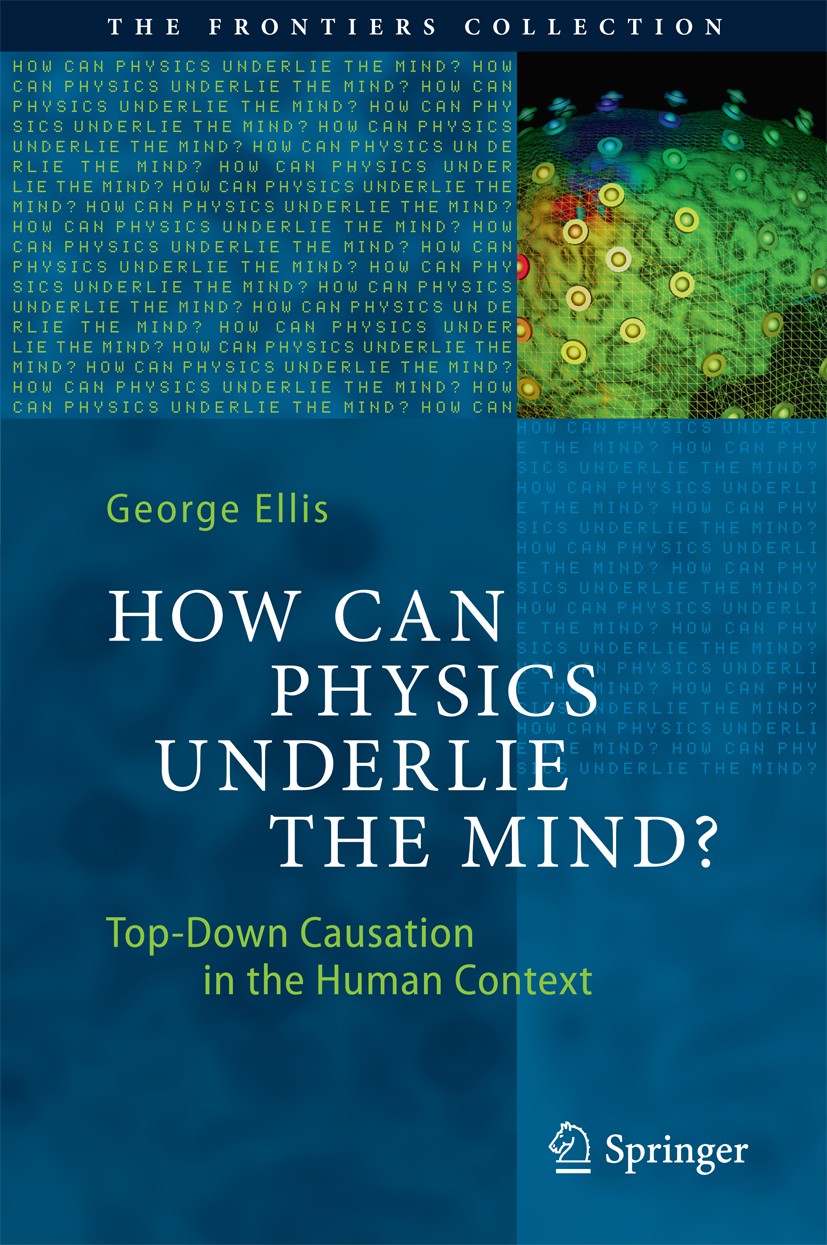| 書目名稱 | How Can Physics Underlie the Mind? | | 副標(biāo)題 | Top-Down Causation i | | 編輯 | George Ellis | | 視頻video | http://file.papertrans.cn/429/428566/428566.mp4 | | 概述 | Addresses one of science and philosophy’s biggest puzzles: how complex structures that emerge from atoms and molecules can become causative agent.Argues that the human mind and resultant social agency | | 叢書名稱 | The Frontiers Collection | | 圖書封面 |  | | 描述 | .Physics underlies all complexity, including our own existence: how is this possible? How can our own lives emerge from interactions of electrons, protons, and neutrons? This book considers the interaction of physical and non-physical causation in complex systems such as living beings, and in particular in the human brain, relating this to the emergence of higher levels of complexity with real causal powers. In particular it explores the idea of top-down causation, which is the key effect allowing the emergence of true complexity and also enables the causal efficacy of non-physical entities, including the value of money, social conventions, and ethical choices.. | | 出版日期 | Book 2016 | | 關(guān)鍵詞 | Adaptive Systems; Biological Information; Emergent Complexity; Human Brain; Top-Down Causation | | 版次 | 1 | | doi | https://doi.org/10.1007/978-3-662-49809-5 | | isbn_softcover | 978-3-662-57036-4 | | isbn_ebook | 978-3-662-49809-5Series ISSN 1612-3018 Series E-ISSN 2197-6619 | | issn_series | 1612-3018 | | copyright | Springer-Verlag Berlin Heidelberg 2016 |
The information of publication is updating

|
|
 |Archiver|手機(jī)版|小黑屋|
派博傳思國際
( 京公網(wǎng)安備110108008328)
GMT+8, 2025-10-5 19:11
|Archiver|手機(jī)版|小黑屋|
派博傳思國際
( 京公網(wǎng)安備110108008328)
GMT+8, 2025-10-5 19:11


